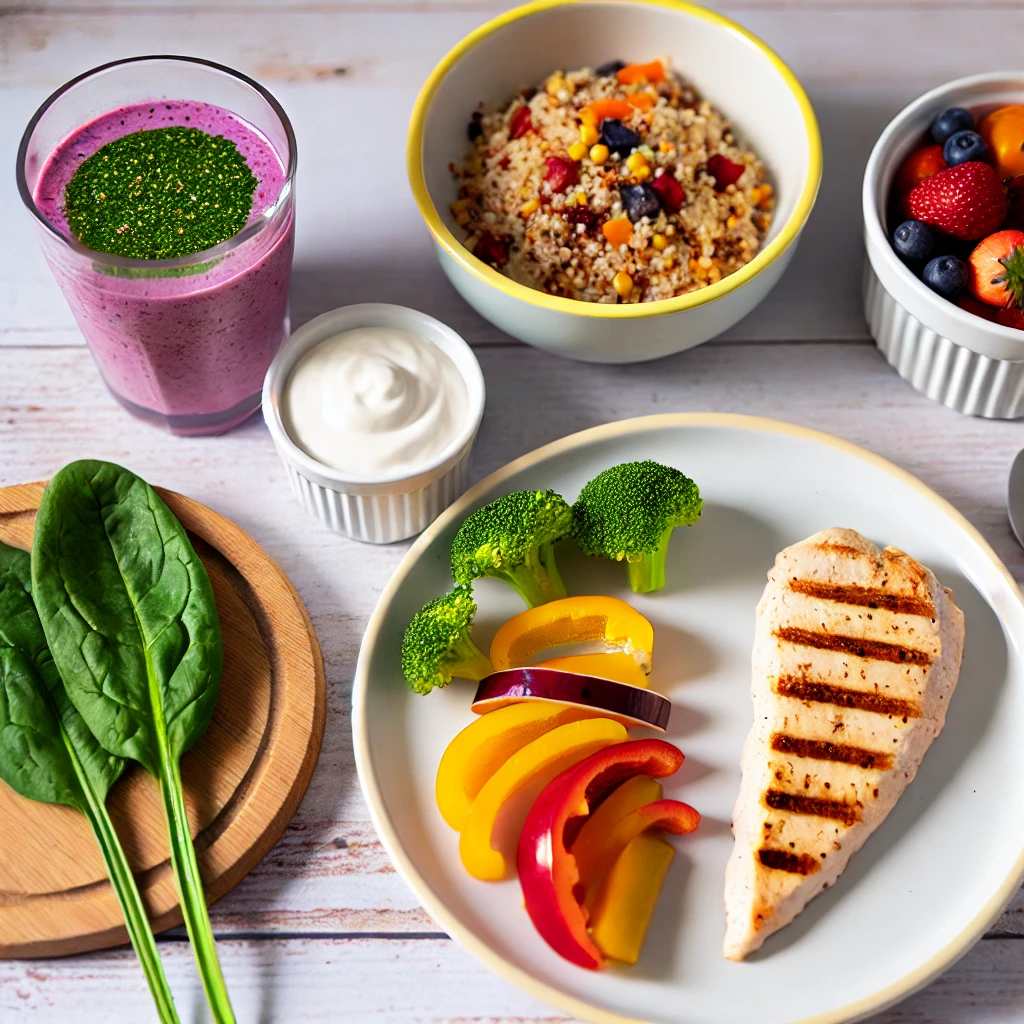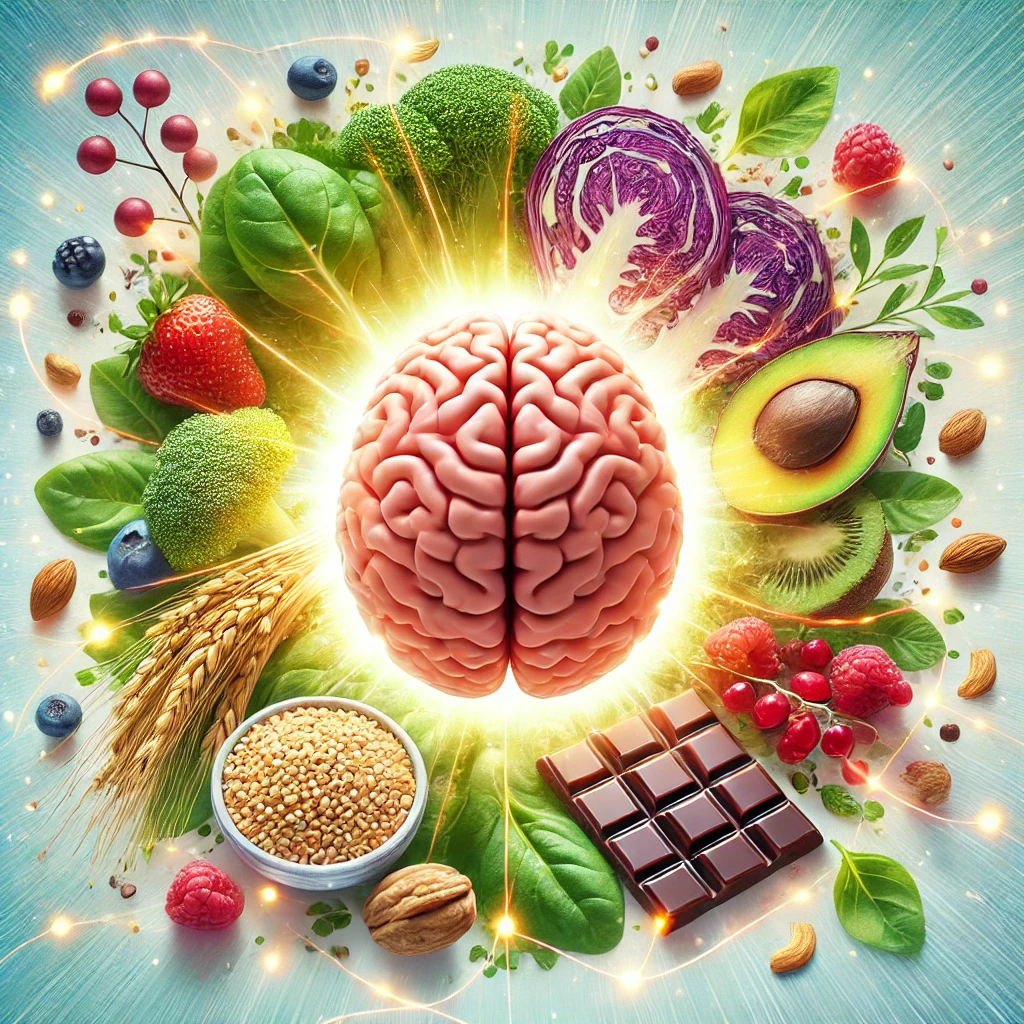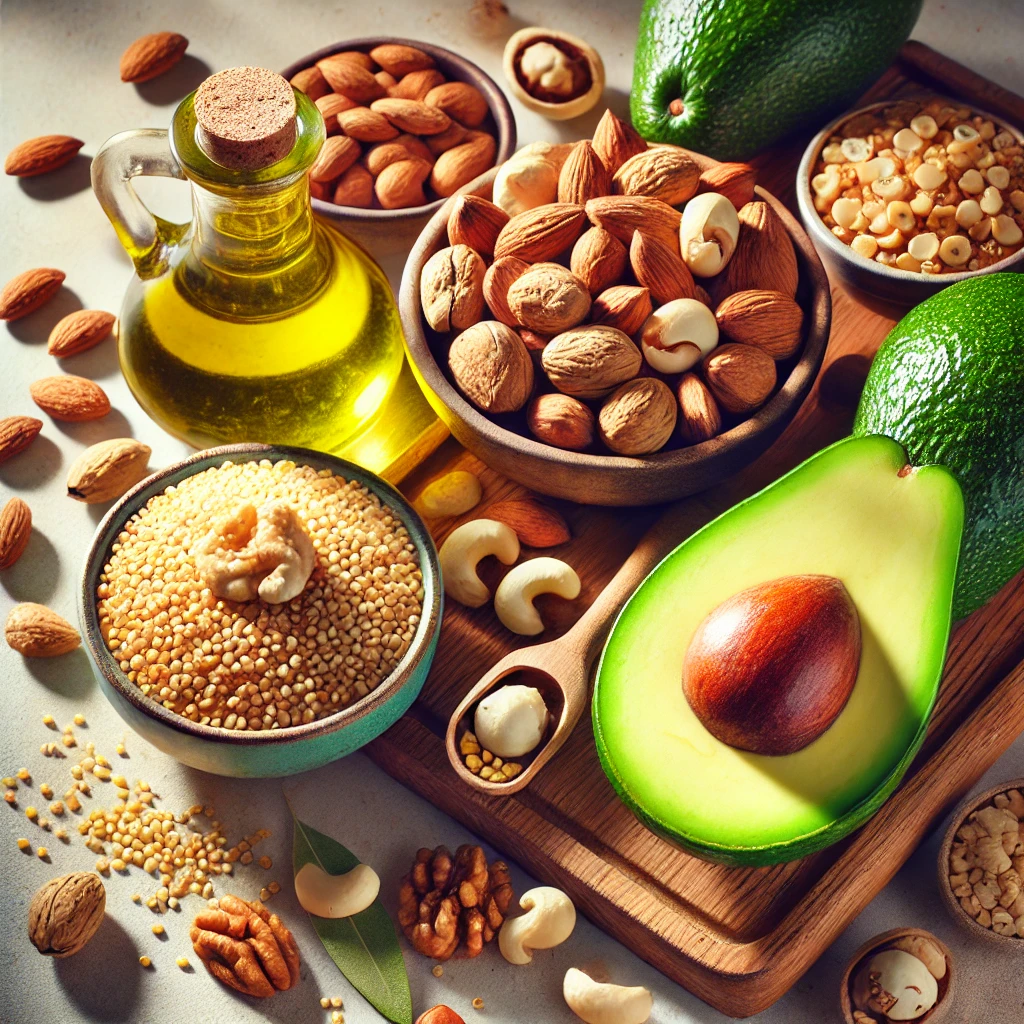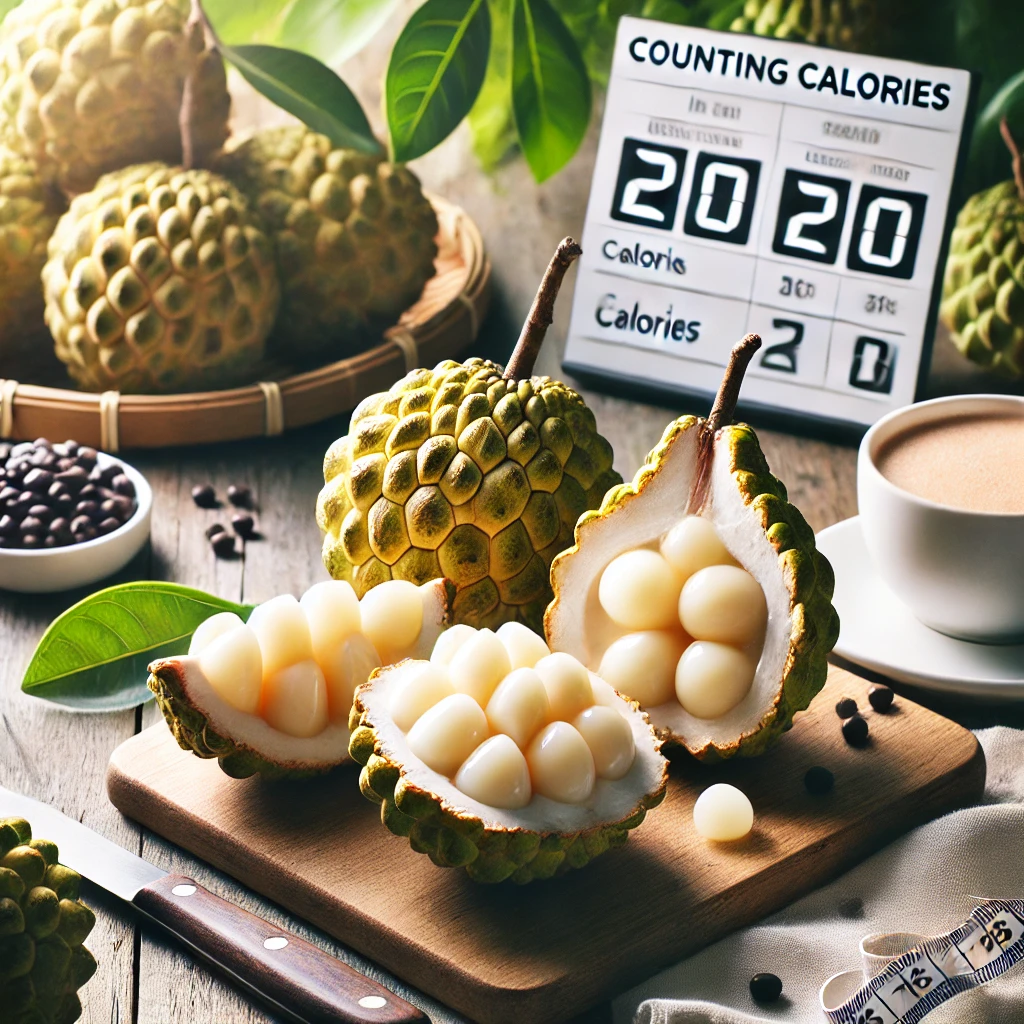Protein-Packed Meal Ideas(good food habits)
If you’re looking to boost your fitness journey, protein-packed meals are a must. These meals not only keep you full but also help in muscle building and recovery. Let’s explore some delicious and easy-to-make Indian-inspired protein-rich meals. Incorporating these good food habits into your diet will make a big difference in your overall health and fitness.
Power Up with Paneer
Paneer, or Indian cottage cheese, is a fantastic source of protein. It’s versatile and can be used in many dishes. One simple idea is to make a paneer tikka wrap. Marinate paneer cubes in yogurt, turmeric, chili powder, and garam masala. Grill them until golden brown. Place the paneer in a whole wheat roti with some fresh veggies and a dash of mint chutney. This wrap is not only protein-packed but also bursting with flavors.
Another great paneer dish is paneer bhurji. Sauté onions, tomatoes, and green chilies in a pan. Add crumbled paneer, turmeric, and salt. Cook until the paneer is slightly browned. Serve it with whole grain bread or paratha. This quick and easy meal is perfect for breakfast, lunch, or dinner and is an excellent way to ensure you’re getting enough protein.
Chickpea Delights(good food habits)
Chickpeas, or chana, are another excellent source of protein. They are versatile and can be used in a variety of dishes. A classic Indian dish is chana masala. Cook chickpeas with onions, tomatoes, ginger, garlic, and a blend of spices like cumin, coriander, and garam masala. This dish is rich in protein and full of flavor. Serve it with brown rice or whole wheat naan for a complete meal.
If you’re looking for a lighter option, try making a chickpea salad. Mix boiled chickpeas with chopped cucumbers, tomatoes, onions, and fresh coriander. Add a squeeze of lemon juice, a pinch of chaat masala, and salt. This refreshing salad is not only high in protein but also very satisfying. It’s perfect for a quick lunch or as a side dish.
Lentil Love
Lentils, or dal, are a staple in Indian cuisine and are packed with protein. One popular dish is dal tadka. Cook yellow lentils with turmeric and salt. In a separate pan, heat some ghee and add cumin seeds, garlic, and dried red chilies. Pour this tempering over the cooked dal. Serve it with steamed brown rice or whole wheat roti. This simple yet flavorful dish is a great way to include more protein in your diet.
Another delicious option is masoor dal soup. Cook red lentils with onions, tomatoes, garlic, and a blend of spices. Blend the cooked lentils to make a smooth soup. This comforting and protein-rich soup is perfect for lunch or dinner. Pair it with a side of grilled vegetables for a balanced meal.
Eggcellent Choices for good food options
Eggs are a fantastic source of protein and can be prepared in many ways. One popular Indian dish is egg curry. Hard boil some eggs and set them aside. In a pan, sauté onions, tomatoes, ginger, and garlic. Add turmeric, chili powder, and garam masala. Add the boiled eggs to this spicy gravy and let them simmer. Serve the egg curry with whole wheat chapati or brown rice.
For a quick and easy breakfast, try making an egg bhurji. Sauté onions, tomatoes, and green chilies. Add beaten eggs and cook until scrambled. Add salt and pepper to taste. This protein-packed dish is perfect for starting your day right. Pair it with whole grain toast for a complete meal.
Fish and Seafood Feasts
Fish and seafood are excellent sources of lean protein. A popular Indian dish is grilled fish. Marinate fish fillets in turmeric, chili powder, lemon juice, and salt. Grill the fish until cooked through. Serve it with a side of steamed vegetables or a fresh salad. This simple and healthy meal is perfect for lunch or dinner.
Another great option is prawn curry. Cook prawns with onions, tomatoes, ginger, garlic, and a blend of spices. Add coconut milk for a rich and creamy curry. Serve it with brown rice or whole wheat naan. This dish is not only high in protein but also full of flavor.
Nuts and Seeds for Added Protein
Nuts and seeds are also great sources of protein and healthy fats. You can easily add them to your meals for an extra protein boost. For example, sprinkle chia seeds or flax seeds on your yogurt or smoothie. Add a handful of almonds or walnuts to your salads. These small additions can make a noticeable difference in your protein intake.
Try making a protein-packed smoothie bowl for breakfast. Blend spinach, Greek yogurt, a banana, and a handful of nuts. Top with chia seeds, flax seeds, and fresh berries. This delicious and nutritious bowl is a great way to start your day.
Embracing Good Food Habits
Incorporating these protein-packed meal ideas into your diet is a great way to embrace good food habits. These meals are not only delicious but also provide the essential nutrients your body needs. Whether you’re looking to build muscle, lose weight, or simply eat healthier, these protein-rich dishes can help you achieve your goals.
Remember, the key to good food habits is variety and balance. Don’t be afraid to experiment with different ingredients and flavors. Enjoy the process of cooking and eating healthy meals. With these protein-packed meal ideas, you’ll be well on your way to a healthier and more satisfying diet. Enjoy your journey towards better health and fitness with these delicious and nutritious recipes!
Carbs: Fuel for Your Workouts(good food habits)
Carbohydrates are essential for providing energy, especially during workouts. They act as the primary fuel source for your body. Let’s explore how you can incorporate healthy carbs into your diet to boost your workout performance. Developing good food habits around carbohydrate intake can make a significant difference in your fitness journey. you can fuel your workouts with our customized diet plans too, check it out
Understanding the Role of Carbs
Carbs are broken down into glucose, which is used for energy. Without sufficient carbs, you might feel tired and sluggish during workouts. Incorporating the right kind of carbs into your diet can enhance your energy levels and improve your performance.
Simple carbs, found in sugary foods, provide quick energy but can lead to spikes and crashes. Instead, focus on complex carbs found in whole grains, vegetables, and legumes. These carbs release energy slowly, keeping you energized longer.
The Power of Whole Grains
Whole grains are a fantastic source of complex carbohydrates and fiber. They keep you full and provide a steady release of energy. Brown rice, quinoa, and whole wheat are excellent choices. For a delicious and nutritious meal, try a brown rice and vegetable pulao. Cook brown rice with mixed vegetables, spices, and a dash of lemon juice. This dish is perfect for a pre-workout meal, providing the energy you need.
Another great option is whole wheat roti with a side of lentils. Lentils are packed with protein and carbs, making this combination ideal for fueling your workouts. The fiber in whole grains also aids in digestion, promoting good food habits and overall health.
Energizing Fruits
Fruits are a natural source of simple and complex carbohydrates. They are perfect for quick energy boosts before workouts. Bananas, apples, and berries are particularly good choices. For a quick snack, try a banana with a tablespoon of peanut butter. This combo provides carbs and protein, giving you sustained energy.
If you’re looking for a refreshing option, try a mixed fruit salad. Combine apples, oranges, berries, and a drizzle of honey. This salad is not only tasty but also packed with vitamins and minerals. Eating fruits regularly can help you maintain good food habits and keep your energy levels high.
Legumes for Lasting Energy
Legumes like chickpeas, lentils, and beans are rich in complex carbohydrates and protein. They provide long-lasting energy, perfect for sustained workouts. One popular Indian dish is chole, or chickpea curry. Cook chickpeas with onions, tomatoes, ginger, garlic, and spices. Serve it with brown rice or whole wheat roti for a balanced meal.
Another nutritious option is lentil soup. Cook lentils with vegetables and spices. Blend until smooth for a comforting and energizing soup. This dish is easy to digest and perfect for refueling after a workout. Incorporating legumes into your diet can help establish good food habits and ensure you get the energy you need.
Healthy Snacks for Workouts
Snacking smartly can provide the extra energy needed for workouts. Opt for snacks that combine carbs and protein. A bowl of oatmeal with fresh fruits is a great choice. Oatmeal is rich in complex carbs, and fruits add natural sweetness and vitamins.
If you prefer savory snacks, try whole grain crackers with hummus. Hummus, made from chickpeas, is rich in carbs and protein. This combination is perfect for a quick snack that keeps you energized. Developing good food habits around snacking can help you avoid unhealthy options and stay on track with your fitness goals.
The Importance of Timing
When it comes to carbs, timing is crucial. Eating carbs before workouts provides the energy needed for performance. Aim to eat a carb-rich meal 1-2 hours before exercising. This allows time for digestion and ensures you have the energy to perform.
Post-workout, carbs are essential for recovery. They help replenish glycogen stores, aiding muscle recovery. A balanced meal with carbs and protein within an hour after your workout is ideal. This helps repair muscles and prepares you for your next session.
Combining Carbs with Other Nutrients
While carbs are vital, combining them with protein and healthy fats can enhance their benefits. For a balanced meal, pair brown rice with grilled chicken and steamed vegetables. This combination provides carbs for energy, protein for muscle repair, and fats for satiety.
Another option is a quinoa and black bean salad. Quinoa is rich in carbs and protein, while black beans add extra protein and fiber. Add some avocado for healthy fats. This balanced meal keeps you full and energized, promoting good food habits.
Avoiding Processed Carbs
Processed carbs like white bread, pastries, and sugary snacks can lead to energy crashes. They lack fiber and essential nutrients. Instead, focus on whole, unprocessed carbs. Whole grains, fruits, and vegetables provide sustained energy and support overall health.
For a healthier alternative, choose whole grain bread over white bread. Opt for fresh fruit instead of sugary snacks. These small changes can help you develop good food habits and maintain steady energy levels throughout the day.
Hydration and Carbs
Staying hydrated is as important as eating the right carbs. Water helps transport nutrients and aids in digestion. Drink plenty of water throughout the day, especially before and after workouts. Adding a slice of lemon or cucumber to your water can make it more refreshing and encourage you to drink more.
For an extra energy boost, try a homemade electrolyte drink. Mix water with a pinch of salt, a squeeze of lemon, and a teaspoon of honey. This drink replenishes lost electrolytes and provides quick energy. Proper hydration supports good food habits and enhances workout performance.
Healthy Fats for Muscle Recovery
When it comes to muscle recovery, healthy fats play a crucial role. They help reduce inflammation and support overall health. Incorporating these fats into your diet can speed up recovery and improve your fitness results. Let’s explore some ways to include healthy fats in your Indian meals. Developing good food habits around these fats will enhance your muscle recovery and overall well-being.
The Magic of Avocado
Avocados are a fantastic source of healthy fats, particularly monounsaturated fats. These fats help reduce inflammation and promote heart health. One delicious way to include avocados in your diet is by making an avocado and paneer sandwich. Mash an avocado and spread it on whole grain bread. Add slices of paneer, tomatoes, and cucumbers. This sandwich is not only tasty but also packed with healthy fats and protein, making it perfect for muscle recovery.
Another great option is an avocado smoothie. Blend avocado with spinach, a banana, and almond milk for a creamy, nutritious smoothie. This smoothie is perfect for a post-workout snack, providing the necessary fats and nutrients for muscle repair.
Nutty Nourishment
Nuts like almonds, walnuts, and cashews are rich in healthy fats and protein. They are excellent for muscle recovery and overall health. For a quick and easy snack, try a handful of mixed nuts. This simple snack is convenient and packed with nutrients.
You can also incorporate nuts into your meals. Try making a delicious almond and chicken salad. Mix grilled chicken with sliced almonds, spinach, and a light olive oil dressing. This salad provides a good balance of healthy fats and protein, making it ideal for muscle recovery.
Seeds of Health
Seeds such as chia, flax, and pumpkin seeds are tiny powerhouses of nutrition. They are rich in omega-3 fatty acids, which are known for their anti-inflammatory properties. Adding these seeds to your meals can greatly benefit muscle recovery.
A great way to include seeds in your diet is by making a chia seed pudding. Mix chia seeds with almond milk and let it sit overnight. In the morning, add fresh fruits and a drizzle of honey. This pudding is not only delicious but also packed with healthy fats and fiber. It’s perfect for a post-workout breakfast.
The Power of Ghee
Ghee, or clarified butter, is a traditional Indian ingredient rich in healthy fats. It contains conjugated linoleic acid (CLA), which has anti-inflammatory properties. Cooking with ghee can enhance the flavor of your dishes and support muscle recovery.
One simple way to use ghee is in cooking dals or curries. Add a teaspoon of ghee to your lentils or vegetables. This not only adds a rich flavor but also provides the necessary fats for muscle repair. You can also use ghee as a topping for whole grain bread or roti, giving your meals a healthy fat boost.
Incorporating Coconut
Coconut and its derivatives, like coconut oil and coconut milk, are excellent sources of healthy fats. They contain medium-chain triglycerides (MCTs) which are easily digestible and provide quick energy. Including coconut in your diet can support muscle recovery and overall health.
For a delicious meal, try making a coconut curry. Cook your favorite vegetables or proteins in coconut milk with spices like turmeric, cumin, and coriander. This creamy curry is not only comforting but also packed with healthy fats. Serve it with brown rice or quinoa for a balanced meal.
Fish for Omega-3s
Fish, particularly fatty fish like salmon and mackerel, are rich in omega-3 fatty acids. These fats are known for their anti-inflammatory benefits, which are crucial for muscle recovery. Including fish in your diet can help reduce muscle soreness and improve recovery times.
For a tasty dish, try making grilled salmon. Marinate salmon fillets in lemon juice, turmeric, and a pinch of salt. Grill until cooked through and serve with a side of steamed vegetables. This meal provides a perfect balance of protein and healthy fats, supporting your recovery efforts.
Combining Fats with Other Nutrients
While healthy fats are essential, combining them with other nutrients can enhance their benefits. For a balanced meal, pair healthy fats with protein and complex carbohydrates. This combination supports muscle recovery and provides sustained energy.
Try a meal of grilled chicken with quinoa and avocado. The chicken provides protein, quinoa adds complex carbs, and avocado offers healthy fats. This balanced plate ensures you get all the necessary nutrients for muscle recovery.
Avoiding Unhealthy Fats
While incorporating healthy fats is important, it’s equally crucial to avoid unhealthy fats. Trans fats and excessive saturated fats, found in fried foods and processed snacks, can hinder muscle recovery and negatively impact health. Instead, focus on whole, unprocessed foods.
Choose foods like nuts, seeds, avocados, and fatty fish over processed snacks. These healthy fat sources provide the nutrients needed for recovery without the negative effects of unhealthy fats. Developing good food habits around healthy fat choices can significantly improve your fitness results.
Cooking Tips for Healthy Fats
Incorporating healthy fats into your cooking can be easy and delicious. Use olive oil or coconut oil for sautéing vegetables. Add nuts and seeds to your salads and smoothies. Spread avocado on your toast instead of butter.
For a delicious and healthy dessert, try making energy balls. Mix dates, almonds, flax seeds, and a bit of cocoa powder. Roll into small balls and refrigerate. These energy balls are a perfect snack, providing healthy fats and natural sweetness.
Timing Your Meals Around Workouts
Properly timing your meals around workouts can significantly enhance your performance and recovery. By adopting good food habits, you can ensure that your body is fueled and ready for exercise. Let’s explore the best practices for meal timing to get the most out of your workouts.
Pre-Workout Fueling
Eating before your workout is essential for providing the energy you need to perform at your best. Aim to have a balanced meal 1-2 hours before exercising. This meal should include a mix of carbohydrates and protein.
A great pre-workout meal is a bowl of oatmeal topped with fresh fruits and a sprinkle of nuts. Oatmeal provides complex carbs for sustained energy, while fruits add quick energy and vitamins. The nuts provide a small amount of healthy fats and protein, which can help keep you full without feeling heavy.
If you prefer a savory option, try a whole wheat roti with paneer and a side of vegetables. Paneer is an excellent source of protein, and the vegetables add fiber and nutrients. This combination ensures you have enough energy for your workout.
The Power of Mid-Workout Snacks
For longer workouts, consider having a small snack to keep your energy levels stable. This is especially important for workouts lasting more than an hour. A banana is a perfect mid-workout snack. It provides quick energy and is easy to digest.
Another great option is a handful of almonds or raisins. Almonds offer protein and healthy fats, while raisins provide a quick carbohydrate boost. These snacks are portable and convenient, making them ideal for when you’re on the go.
Post-Workout Recovery
Eating after your workout is crucial for muscle recovery and replenishing energy stores. Aim to eat a meal rich in protein and carbohydrates within 30 minutes to an hour after exercising. This helps repair muscles and refuel your body.
A delicious post-workout meal could be a bowl of quinoa salad with mixed vegetables and grilled chicken. Quinoa is a fantastic source of complex carbs and protein, while chicken provides lean protein for muscle repair. The vegetables add essential vitamins and minerals.
For a vegetarian option, try a lentil soup with whole grain bread. Lentils are rich in protein and fiber, and the whole grain bread provides the necessary carbs. This meal is comforting and nourishing, perfect for aiding recovery.
Hydration is Key
Hydration is just as important as food when it comes to workouts. Drink plenty of water before, during, and after your exercise. Staying hydrated helps maintain your energy levels and supports overall performance.
A good habit is to start your day with a glass of water. Continue drinking water throughout the day, especially before your workout. During your exercise, take small sips of water to stay hydrated. After your workout, rehydrate with water or a natural electrolyte drink.
Balancing Meals Throughout the Day
While timing your meals around workouts is important, maintaining balanced meals throughout the day is equally crucial. Ensure each meal contains a good mix of protein, carbs, and healthy fats. This supports sustained energy levels and overall health.
For breakfast, try a smoothie made with Greek yogurt, spinach, banana, and chia seeds. This smoothie provides protein, healthy fats, and carbs, making it an excellent start to your day. For lunch, opt for a vegetable stir-fry with tofu and brown rice. Tofu is a great source of plant-based protein, and brown rice offers complex carbs for energy.
Dinner could be a serving of grilled fish with sweet potatoes and a side of steamed vegetables. Fish is rich in omega-3 fatty acids and protein, while sweet potatoes provide fiber and carbs. The vegetables add a variety of essential nutrients.
Good Food Habits for Sustained Energy
Developing good food habits is key to ensuring you have the energy needed for your workouts and daily activities. Focus on whole, unprocessed foods that provide sustained energy and support overall health.
Snack smartly by choosing options like fresh fruits, nuts, and seeds. These snacks are nutrient-dense and provide quick energy without the crash that comes from sugary snacks. Incorporate a variety of foods to ensure you’re getting a wide range of nutrients.
Planning and Preparing Meals
Planning and preparing your meals in advance can help you stick to good food habits. Meal prepping ensures you have healthy options readily available, reducing the temptation to reach for unhealthy foods.
Set aside some time each week to plan your meals. Cook larger batches of food that you can divide into portions for the week. This not only saves time but also ensures you have balanced meals ready to go.
Listening to Your Body
While it’s important to follow general guidelines for meal timing, listening to your body is equally important. Pay attention to how you feel before and after meals. Adjust your eating schedule based on your energy levels and workout intensity.
If you feel sluggish during workouts, you might need to eat a bit more beforehand. If you’re feeling too full, try eating a smaller meal or snack. Everyone’s body is different, so find what works best for you.
The Role of Supplements
While whole foods should be your primary source of nutrition, supplements can play a role in supporting your workout and recovery. Protein powders, for example, can be a convenient way to ensure you’re getting enough protein after a workout.
Consider adding a scoop of protein powder to your smoothie or mixing it with water or milk. This can help meet your protein needs, especially if you’re doing intense workouts. However, always prioritize real food and use supplements as a convenient addition rather than a replacement.
Final Thoughts
Timing your meals around workouts is essential for optimizing performance and recovery. By developing good food habits, you can ensure your body is fueled and ready for exercise. Focus on balanced meals, stay hydrated, and listen to your body. With these tips, you can enhance your workout routine and achieve better results. Enjoy experimenting with these meal ideas and feel the difference in your energy levels and overall fitness!




